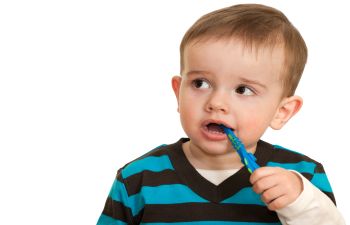
Thumb sucking, using a pacifier, or being given a bottle are things babies enjoy and find comfort in. However, when it is allowed to go on for too long, these vices can have serious effects on the development of the child’s mouth.
When Should Thumb Sucking Stop?
It’s best to break this habit before the permanent teeth start to come in. So, by the age of three or four at the latest, you’ll want to start transitioning your child out of thumb sucking.
What Are the Effects of Thumb Sucking?
Thumb sucking can affect a child’s growing mouth and the way that it forms. It can cause teeth to be misaligned, and protrude outward, leaving an open bite. This means that when your child bites down, their front teeth won’t touch. A protruded bite can sometimes be seen even when the mouth is closed because the lips are pushed farther out. Also, skeletal issues like the malformation of the roof of the mouth can occur from thumb and pacifier sucking.
Getting Your Child to Stop
Most of the time a child will stop on their own with no intervention needed. However, for those stubborn cases, here are some tips that may help.
- Set up some kind of reward system with milestones.
- Encourage, praise, and show your support for your child.
- Thumb sucking can be a subconscious thing. If your child doesn’t even realize that they’re doing it, you can purchase over the counter products that fit over the thumb to prevent your child from sucking their thumb. You could simply use a glove, a bandage, or a sock if you prefer.
Intervention
If you need assistance with eliminating your child’s thumb sucking habits, you can give the professionals of Dream Dentist a call. We’re glad to help in whatever way we can.
Posted on behalf of
